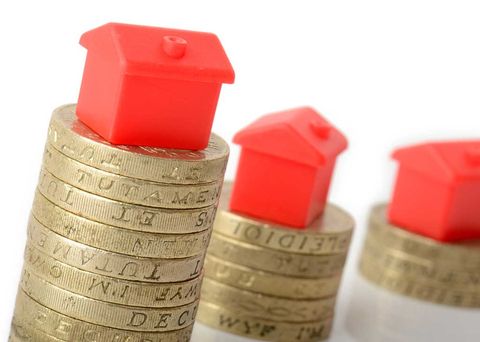Instead, the more important explanations are likely related to the extraordinary economic impacts of the pandemic. Partially imposed savings among households as a result of the restrictions have created space for housing consumption. At the same time, it is likely that widespread homework has made families want a bigger house and spend more money on their homes, ”writes Riksbank and adds that families with permanent jobs, who could more easily obtain a mortgage, have been affected. Also with a small residence the extent of the crisis.
Riksbank expects that housing prices will continue to rise, albeit at a slower pace, and that the rate of increase will slow this year.
‘Not following historical patterns’
Riksbank notes that the development of housing prices during the pandemic has not followed historical patterns, as prices typically decline in a recession. The same thing happened in many other similar countries.
Mortgage rates and disposable income have historically been among the most important factors explaining soaring home prices in Sweden, but interest rates have been fairly stable during the crisis and income has developed very poorly. However, the exemption from depreciation requirements may have a certain effect, as well as the sharp rise in the stock market, but it was not of any decisive significance.
‘The main explanation for the pandemic’
Instead, the most important explanations seem to have been the epidemic itself and its effects on the economy, as the restrictions meant that families are not consuming restaurant visits and hotel stays as before, and thus receive money for housing consumption.
A sign that household finances have shifted from consumption of goods and services to spending on housing can be found in Finansinspektionen’s mortgage survey. It indicates that new mortgage borrowers in the fall of 2020 borrowed more compared to the previous year, both in terms of home value (higher loan-to-value ratio) and income (higher debt ratio, “Riksbank wrote.
“The homework part of the explanation”
Both the average loan-to-value ratio and the average debt ratio were the highest since the investigations began, according to Riksbank. One possible explanation for families wanting to spend more money on their homes is spending more time at home, as increased homework has increased demand, especially in larger homes.
“Working from home – in whole or in part – was common during the pandemic, which is confirmed by surveys, among other things. In addition, surveys indicate that the majority of families prefer to work partially from home even after the epidemic is over. Good conditions for domestic work may have increased permanently, which in turn may affect housing demand, ”Riksbank wrote.
‘Asymmetric epidemiological impacts’
Another possible explanation for the fact that housing prices have not been affected by the economic downturn according to historical patterns relates to developments in the labor market, as the Corona crisis struck very unevenly and, above all, affected the specified term. employees.
People with temporary jobs were already in a vulnerable position in the housing market before the crisis, in part because they usually had a hard time obtaining mortgage loans from banks. Riksbank wrote that the employment of those individuals who are already established in the housing market and with a permanent job has been affected instead to some extent.

“Extreme tv maven. Beer fanatic. Friendly bacon fan. Communicator. Wannabe travel expert.”







More Stories
Brexit brings economic uncertainty – Finland worst hit in the long run – Hufvudstadsbladet
Britain wants closer ties with the European Union.
Britain may already be out of recession